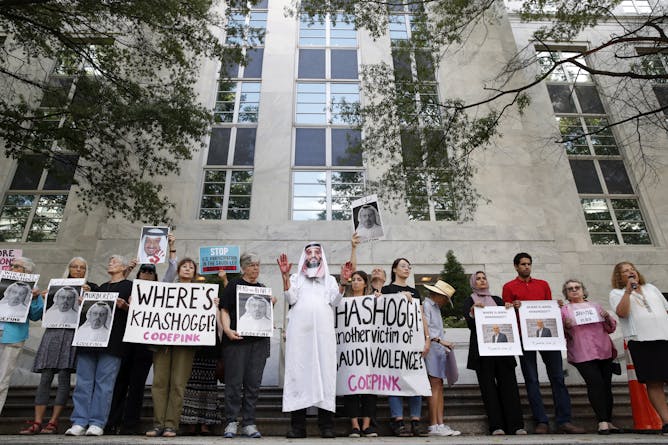|
The disappearance and likely murder of journalist Jamal Khashoggi has become an international crisis. Today in The Conversation Canada, Shenaz Kermalli of Ryerson University tells us about her interactions as a journalist with Khashoggi. She looks at Khashoggi’s “parallel careers as both a reporter and a government adviser” and points out that his one-time “friends” in government ultimately silenced him.
In the early part of the 21st century, academics, policy makers and authors were predicting how the internet was going to enhance democracy by broadening civil engagement. But Robert Diab of Thompson Rivers University says reality has shown the “web as a tool for citizen empowerment is a mostly a mirage.”
And finally…it’s just one more day until recreational marijuana is legal in Canada. One aspect not covered by the law is all the people who have criminal records for past cannabis-related crimes. Roberta Timothy of York University says the issue of amnesty for past crimes is something that should be addressed – especially because there’s been a disproportional prosecution of Black and Indigenous people for using marijuana.
Regards,
|

People, including the activist group Code Pink, hold signs at the Embassy of Saudi Arabia during a protest about the disappearance of Saudi journalist Jamal Khashoggi, Oct. 10, 2018, in Washington, D.C.
(AP Photo/Jacquelyn Martin)
Shenaz Kermalli, Ryerson University
Missing Saudi journalist Jamal Khashoggi was no ordinary reporter. His contacts included the Royal Family as well as known terrorists.
|

New research shows that more and more of our public conversation is unfolding within a dwindling coterie of sites that are controlled by a small few, largely unregulated and geared primarily to profit rather than public interest.
Unsplash
Robert Diab, Thompson Rivers University
New research into the economics of attention online casts doubt on the net’s role in fostering public debate, and raises concerns about the future of democracy.
|

The new cannabis legislation in Canada does not give enough thought to those who were overly punished for cannabis-related activities.
Jakob Owens/Unsplash
Roberta K. Timothy, York University, Canada
Now that cannabis is almost legal in Canada, many are celebrating. Before we forget, we should remember those that have been arrested for previous crimes and push for amnesty.
|
Politics
|
-
Yu-Shan Wu, University of the Witwatersrand; Chris Alden, London School of Economics and Political Science; Cobus van Staden, South African Institute of International Affairs
Not enough credit is given to the agency African governments have in their dealings with China.
|
|
Business + Economy
|
-
Robert H. Scott III, Monmouth University; Kenneth Mitchell, Monmouth University
A deep recession, a severe drought and a plunging currency have led to the biggest bailout in IMF history. The government hopes it can avoid the meltdowns that followed past crises.
|
|
Culture + Society
|
-
Tim Liao, University of Illinois at Urbana-Champaign
Sprinter Peter Norman has been memorialised in many ways in the US for his support of Tommie Smith and John Carlos at the 1968 Olympics. In Australia, it's taken much longer.
|
|